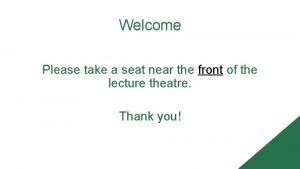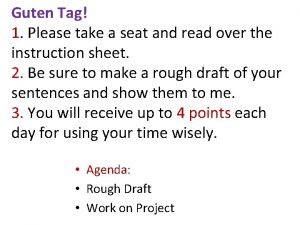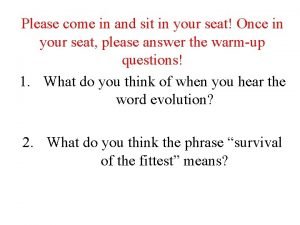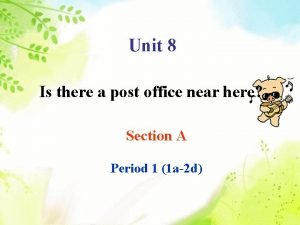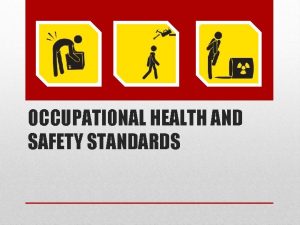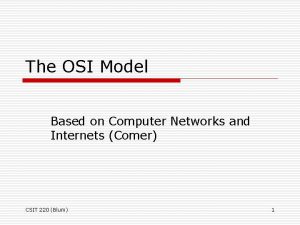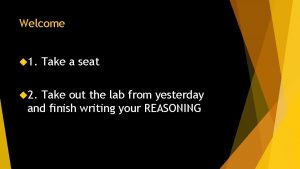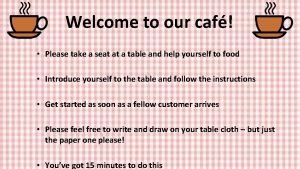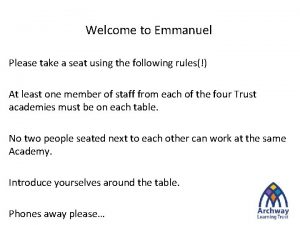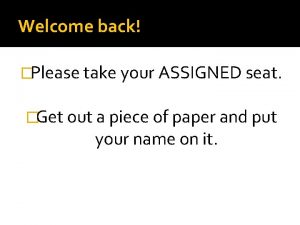Welcome Please take a seat near the front
















- Slides: 16

Welcome Please take a seat near the front of the lecture theatre. Thank you!

The MRes Dissertation: Writing For a Reader The Writing Development Centre Contact: wdc@ncl. ac. uk @ncl_wdc Writing Development Centre Explore the possibilities

Today’s Session: two functions of writing Writing as tool for thinking Writing as tool for communicating

Writing for a Reader You’ve been given an extract from a Methods chapter. How ‘reader-friendly’ is it? Does it answer all of your questions?

Readers’ Questions: Structuring Your Work The Abstract What do we know about the topic? Why is the topic important? What is this study about? How was it done? What was discovered? What do the findings mean?

Your real reader and their expectations Synthesis/Creation Evaluation Analysis Application Understanding Knowledge

Demonstrating higher order thinking: the one-sentence challenge Can you explain the purpose of your dissertation in one sentence? Have a go! Prompt question What do you want your readers to take away from your dissertation? Writing Prompts “I want to see whether …” “I want to compare and contrast …” “I want to show that …” “I am going to argue that …”

Refining your aims and objectives • What is your dissertation about? • What aspects will you focus on? • What are you going to do? • What question will you answer? • What problem does it solve? • Why does it need answering/solving?

Demonstrating higher order thinking: description or analysis? Read through the statements on your handout. Mark each statement with D or A depending on whether you think it is description or analysis. (Mark with ? the ones which could be either).

Readers’ Questions: developing criticality Why? How? So what? How do you know that? But what about …? What would happen if …?

Demonstrating higher order thinking: the conclusion The conclusion should: “present the major findings of the project and their implications. ”

Demonstrating higher order thinking: the conclusion What critical questions might you ask to develop this conclusion: “This study has identified that people following liver transplant have significantly worse function that of comparator populations; indeed, it is to the same degree of difficulty as that of people with Chronic Liver Disease. ”

Two functions of writing Writing as tool for thinking Writing as tool for communicating

The Writing Development Centre Level 2, Philip Robinson Library Undergraduate - Masters - Ph. D Our team of expert tutors offers: - One to one tutorials - Online resources including our Blog - Activities including Write Here, Write Now Visit us online: http: //www. ncl. ac. uk/students/wdc/ HASS – SAg. E - FMS

The Writing Development Centre Develop your academic skills • • • Take effective notes Think critically Interpret essay questions Understand assessment criteria Read efficiently Argue convincingly Plan assignments Manage your time Express ideas confidently • • Revise effectively Critically review literature Structure essays Use drafting & editing techniques Make the most of lectures & seminars Manage your dissertation or Ph. D thesis Avoid plagiarism Improve your exam technique

Notice and Take Down Policy Newcastle University seeks to observe the highest standards of compliance with the law and the rights of rights holders, while publishing research and teaching resources to support our students and staff and contribute to academic practice. If you are a rights holder and are concerned that you have found material on our website or legitimately under our name elsewhere, for which you have not given permission, or is not covered by a limitation or exception in laws of the UK or other countries (as relevant), please contact us in writing stating the following: your contact details the full bibliographic details of the materials the exact URL or other location where you found the material proof that you are the rights holder and a statement that, under penalty of perjury, you are the rights holder or are an authorised representative Contact details Email: noticeandtakedown@ncl. ac. uk Web: http: //www. ncl. ac. uk/info/legal/takedown. html
 Welcome please take a seat
Welcome please take a seat Please take a seat
Please take a seat Please come in and have a seat
Please come in and have a seat Good morning please have a seat
Good morning please have a seat Theobald von bethmann hollweg
Theobald von bethmann hollweg Please come in and have a seat
Please come in and have a seat Good afternoon please have a seat
Good afternoon please have a seat Hey hey people
Hey hey people Good afternoon please have a seat
Good afternoon please have a seat Good morning please have a seat
Good morning please have a seat Front seat valve
Front seat valve Seahawks tackling drills
Seahawks tackling drills The library is ___ from the post office
The library is ___ from the post office Nobody said anything raymond carver
Nobody said anything raymond carver Where can i take forklift classes near me
Where can i take forklift classes near me Refers
Refers Please do not throw sausage pizza away
Please do not throw sausage pizza away
